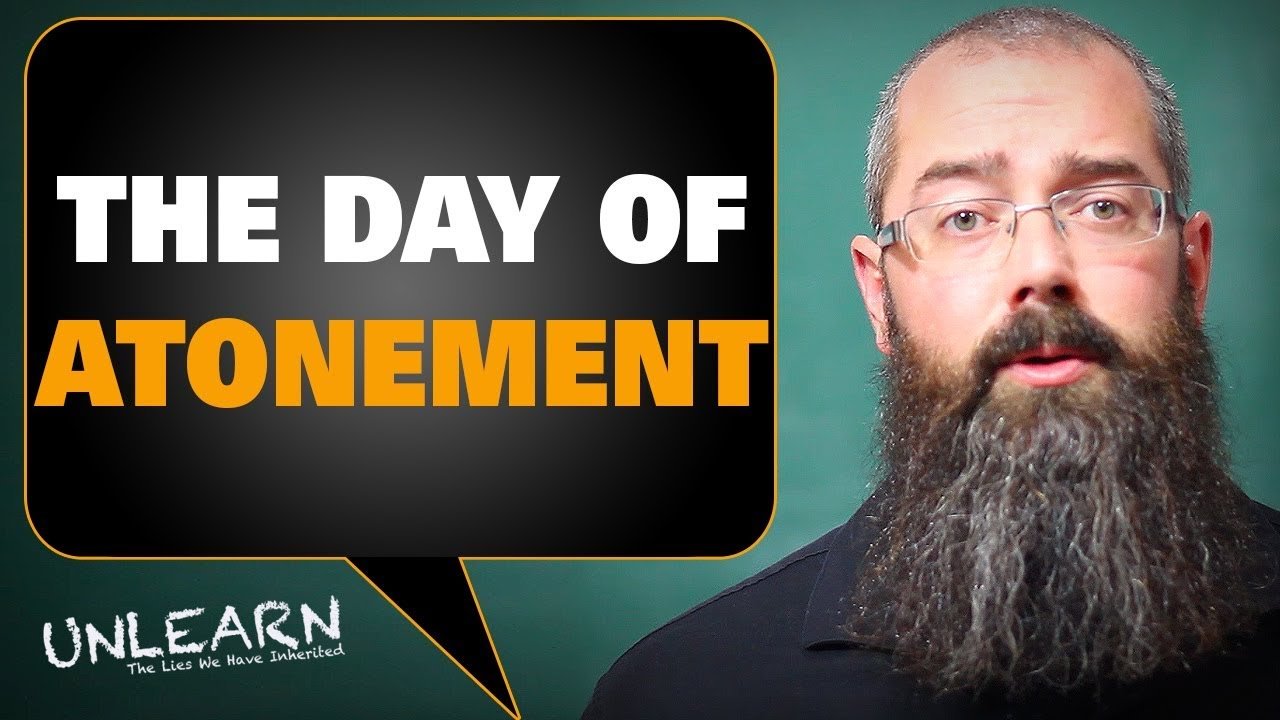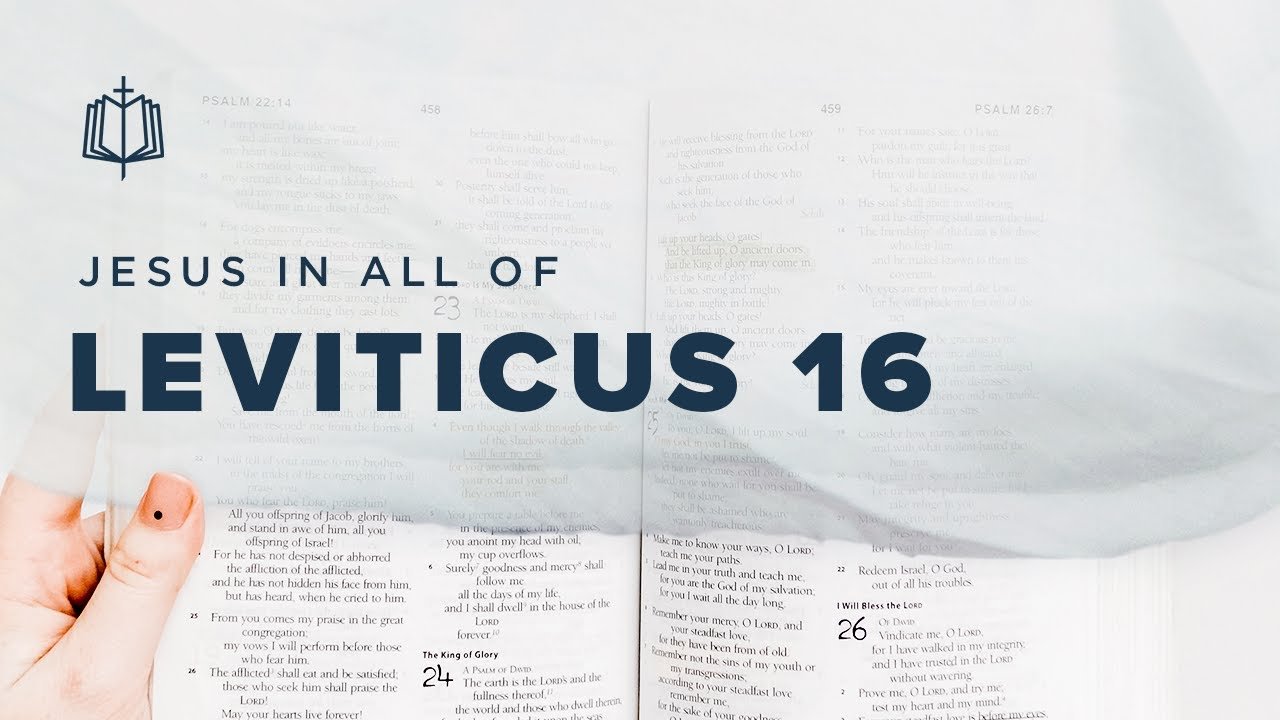What does the Bible say about Yom Kippur, the day of Atonement, and how should we observe this Holy day? It’s time to UNLEARN the lies. UNLEARN Hey, welcome to UNLEARN. My name is Lex, and I’d like to invite you to join us each week as we UNLEARN the lies
And dig deeper into the truth of Yah’s Word. Now, let’s get started. Yom Kippur, also known as the Day of Atonement, is the holiest day of the year and is regarded as the “Sabbath of Sabbaths”. The focus of this day is atonement and repentance, and it’s observed with prayer, fasting, and
Giving charity to those in need. Yom Kippur takes place on the tenth day of the seventh month in the Hebrew calendar. Yom Kippur is the only day in which the High Priest was allowed to enter the Most Holy Place in the Temple.
It’s a day of intercession in which the High Priest makes atonement for the people. The first question I want to address is, “should Christians keep Yom Kippur?” Most Christians seem to think that Jesus put an end to the Feasts, and that the Biblical
Feasts are only for the Jews, but listen to what the Bible has to say about it. “This shall be a statute FOREVER for you: In the seventh month, on the tenth day of the month, you shall afflict your souls, and do no work at all, whether a native of your
Own country or a stranger who dwells among you. For on that day the priest shall make atonement for you, to cleanse you, that you may be clean from all your sins before the Lord. It is a sabbath of solemn rest for you, and you shall afflict your souls. It is a statute FOREVER.
And the priest, who is anointed and consecrated to minister as priest in his father’s place, shall make atonement, and put on the linen clothes, the holy garments; then he shall make atonement for the Holy Sanctuary, and he shall make atonement for the tabernacle
Of meeting and for the altar, and he shall make atonement for the priests and for all the people of the assembly. This shall be an EVERLASTING statute for you, to make atonement for the children of Israel, for all their sins, once a year.” – Leviticus 16:29-34
Notice the Bible says the day of Atonement is an everlasting statute that’s to be observed forever. It also says that both the native born Israelites and the foreigner who dwells with them should observe it. This means that it’s for both Jews and Gentiles, and that we should still be keeping it today.
So, if we are expected to keep it forever as an everlasting statute, the next question we need to answer is how do we keep Yom Kippur? We are instructed to afflict our soul and to do no work on that day.
“And the Lord spoke to Moses, saying: “Also the tenth day of this seventh month shall be the Day of Atonement. It shall be a holy convocation for you; YOU SHALL AFFLICT YOUR SOULS, and offer an offering made by fire to the Lord.
And YOU SHALL DO NO WORK ON THAT SAME DAY, for it is the Day of Atonement, to make atonement for you before the Lord your God. FOR ANY PERSON WHO IS NOT AFFLICTED IN SOUL ON THAT SAME DAY SHALL BE CUT OFF FROM HIS PEOPLE.
AND ANY PERSON WHO DOES ANY WORK ON THAT SAME DAY, THAT PERSON I WILL DESTROY FROM AMONG HIS PEOPLE. You shall do no manner of work; it shall be a statute forever throughout your generations in all your dwellings.
It shall be to you a SABBATH OF SOLEMN REST, and YOU SHALL AFFLICT YOUR SOULS on the ninth day of the month at evening, from evening to evening, you shall celebrate your sabbath.” – Leviticus 23:26-32 While the High Priest would preform certain sacrifices and rituals to make atonement for
Israel, the people would fast and pray. The practice of fasting on Yom Kippur comes from the command to afflict our soul on that day. The word translated as soul is nephesh, and it can also be translated as appetite. So, we fast to afflict our appetites.
This fasting includes abstaining from all fleshly desires including food, drink, and marital relations. Fasting shows that we are not a slave to our own appetites. The phrase “afflict your soul” could also be translated “make poor your soul,” which
Sounds very similar to what Yeshua taught in the Sermon on the Mount when He said, “Blessed are the poor in spirit, for theirs is the kingdom of Heaven.” He also said, “If anyone would come after Me, he must deny himself and take up his cross and follow me.”
Repentance requires discipline, and fasting is a great way to discipline ourselves. Fasting is a type of self-denial that places our flesh into submission of our spirit. By fasting we deny ourselves the natural desires of our flesh. Fasting is difficult and goes against our instincts, but it’s a great way of showing
That our god is not our belly. When we set aside a time to pursue intimate relationship with the Father through fasting, we are making the statement that we value relationship with Him more than food. Remember that when Yeshua was fasting He was tempted to turn stones into bread and He proclaimed
That man does not live on bread alone, but on every word that comes from the Father, and when we fast we are making the same proclamation with our life. Fasting is also used to show remorse and mourning, and when we consider the cost of our salvation we should feel remorse for our sin.
Likewise, when we think about the people who are heading for destruction, we should lament and mourn for them. Why is fasting so powerful? Because we are showing Yahweh that we are willing to die. In fact, when we abstain from food, drink, and marital relations and deny our flesh all
Forms of pleasure, we are afflicting our soul and dying to our flesh. However, fasting should not be done to make ourselves appear to be more spiritual. In fact, Yeshua warned that fasting should be done privately and that we shouldn’t make it known to others that we are fasting.
“Moreover, when you fast, do not be like the hypocrites, with a sad countenance. For they disfigure their faces that they may appear to men to be fasting. Assuredly, I say to you, they have their reward. But you, when you fast, anoint your head and wash your face, so that you do not appear
To men to be fasting, but to your Father who is in the secret place; and your Father who sees in secret will reward you openly.” – Matthew 6:16-18 While repentance and fasting are important, we need to realize that no amount of self-sacrifice can atone for our sins.
Fasting does not replace the need of a blood sacrifice for atonement. I want to stress this point because I know there will be some who claim that we are trying to earn our salvation. Let me be very clear, our salvation and atonement comes only through the shed blood of our Messiah.
We can do nothing to atone for our own sins. If you think that by fasting and repentance you can find atonement without a blood sacrifice and apart from the work of the High Priest, you are gravely mistaken.
Yom Kippur is translated as the day of Atonement, but it could also be translated as the day of covering, or the day of ransom, and the sacrifices are offered as a substitutionary atonement for the sins of the people. We are ransomed or redeemed by the blood of the sacrifice.
The picture is that of an innocent life being given in place of the guilty life. The importance of blood sacrifice for atonement cannot be overstated. The Bible says that without the shedding of blood there can be no atonement.
“For the life of the flesh is in the blood, and I have given it to you upon the altar to make atonement for your souls; for it is the blood that makes atonement for the soul.'” – Leviticus 17:11 “And according to the law almost all things are purified with blood, and without shedding
Of blood there is no remission.” – Hebrews 9:22 The Bible says that Yeshua is our Great High Priest, and that He made the ultimate atonement for our sins by offering His own blood in the Most Holy Place in the Heavenly Tabernacle.
“But Christ came as High Priest of the good things to come, with the greater and more perfect tabernacle not made with hands, that is, not of this creation. Not with the blood of goats and calves, but with His own blood He entered the Most Holy Place once for all, having obtained eternal redemption.
For if the blood of bulls and goats and the ashes of a heifer, sprinkling the unclean, sanctifies for the purifying of the flesh, how much more shall the blood of Christ, who through the eternal Spirit offered Himself without spot to God, cleanse your conscience from dead works to serve the living God?”
– Hebrews 9:11-14 The word for sacrifice in Hebrew is Korban, and the root of that word means to “draw close” or to “come near.” The day of Atonement and it’s sacrifices are given so that we can draw near to Yahweh.
However, there has not been a Temple in Jerusalem since 70AD, which means the shed blood of Messiah is the only option for atonement. This is why Yeshua said, “I am the way, the truth, and the life. No one comes to the Father except through Me.”
Yeshua is our Great High Priest, and there is no other means of atonement except through Him. The only way we can draw near to the Father is through the sacrifice of His Son. The only way we can find atonement is through the blood of Yeshua. So, should believers in Messiah keep Yom Kippur?
Absolutely, and I want to point out that we are the only ones who can keep it, because we are the only ones who have a High Priest serving in the heavenly Tabernacle. I want to encourage you to keep the day of Atonement each year with fasting and prayer,
Confessing your sins to our Great High Priest, Yeshua. Sin separates us from Yahweh, and we need to confess and repent from our sins, drawing near to the Father through the sacrifice of His only begotten Son. “If we confess our sins, He is faithful and just to forgive us our sins and to cleanse
Us from all unrighteousness.” – 1 John 1:9 I pray that you will have a meaningful Yom Kippur and that your name will be inscribed in the book of life, and that you will be washed in the blood of Messiah. SHARE THE TRUTH UNLEARN THE LIES Thanks for watching.
If you found this video helpful then share it with your friends and family so they can UNLEARN the lies with us. If you want to see more videos like this one, subscribe to my channel. And I want to say a special thank you to those who support this ministry.
We truly appreciate your generosity. And remember, the truth will set you free. See you next time.
#Yom #Kippur #Day #Atonement #UNLEARN #lies


